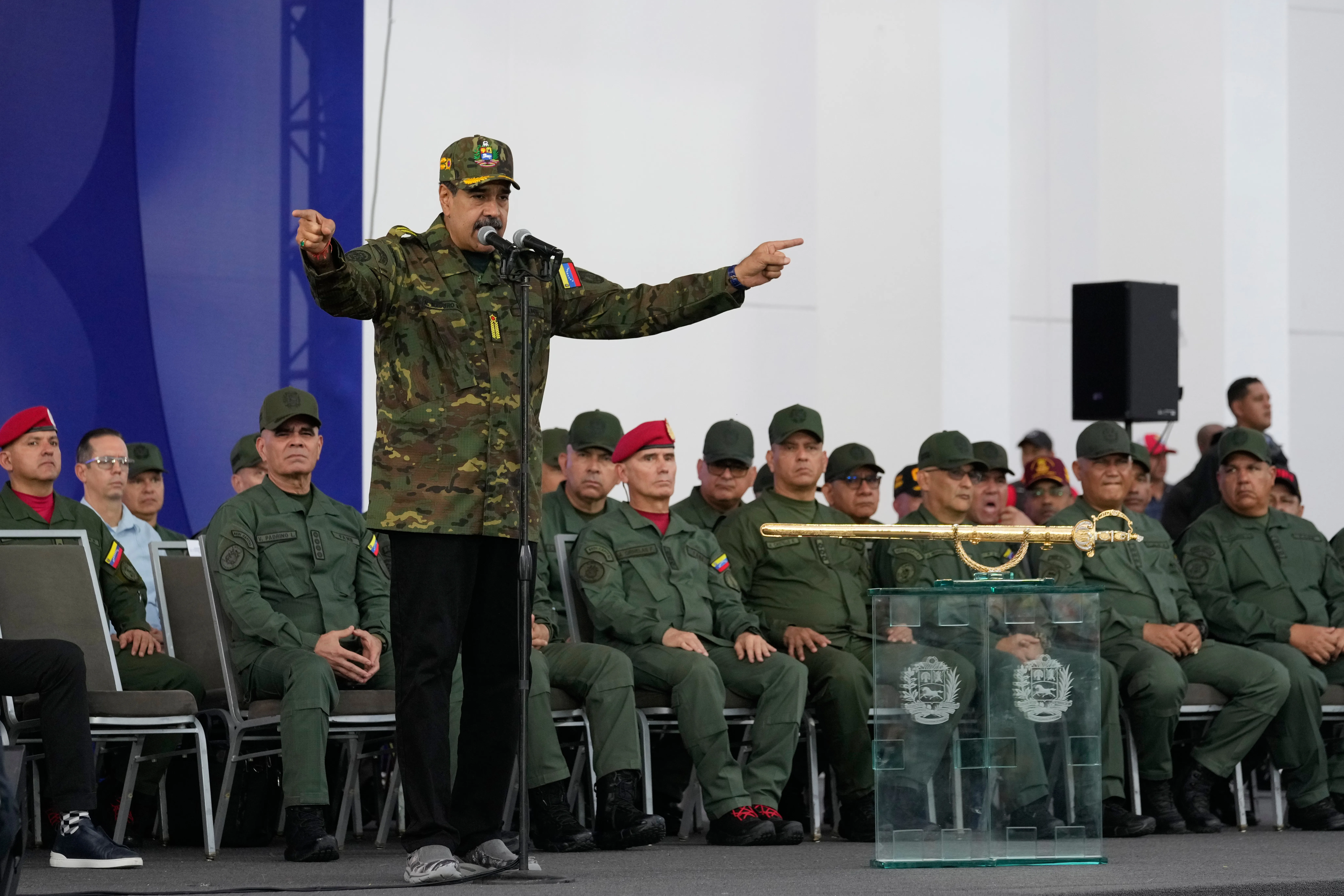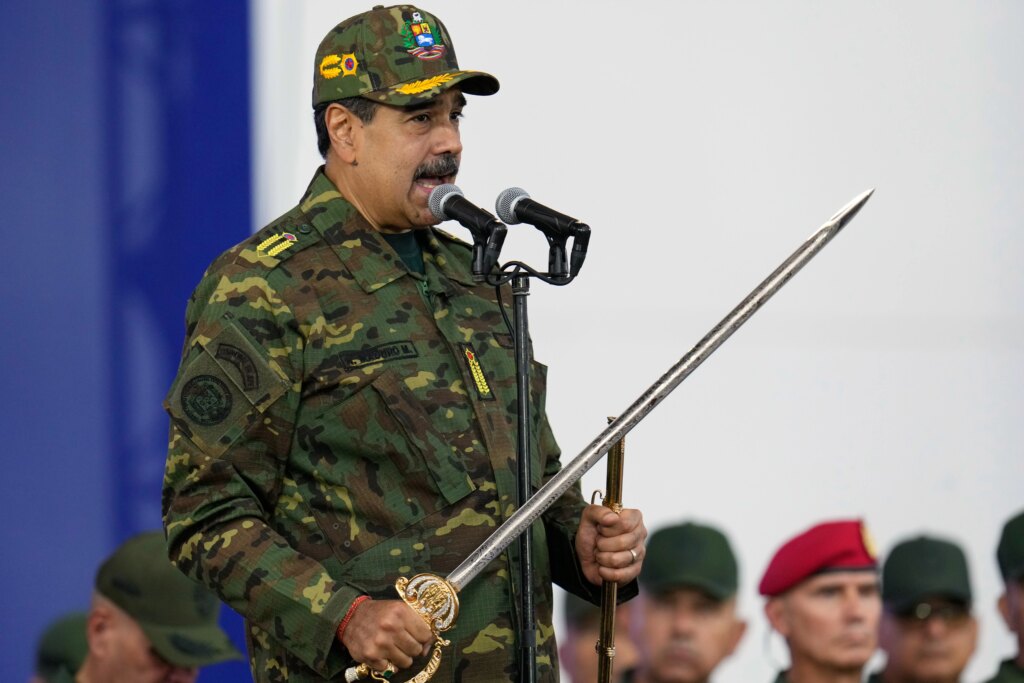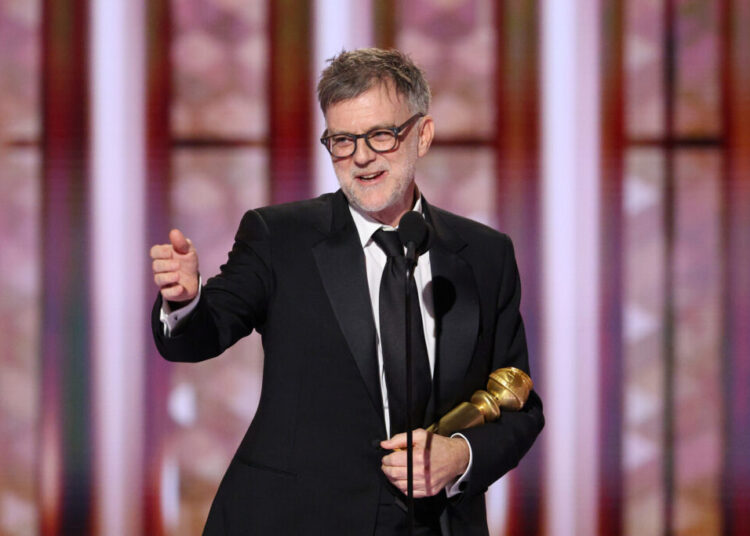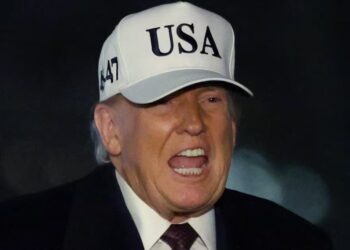Venezuela’s President Nicolás Maduro rallied his supporters on Tuesday during a march in the country’s capital, Caracas. Dressed in camouflage fatigues and brandishing a sword, Maduro vowed to protect his homeland from any possible U.S. threat. His defiant stance comes as tensions between Venezuela and the U.S. have reached a seemingly critical level, with the latter expanding its military presence in the Caribbean Sea. Since September, the Trump Administration has launched over 20 strikes on boats it alleges are smuggling narcotics, killing at least 80 people.
[time-brightcove not-tgx=”true”]
“We must be ready to defend every inch of this blessed land from imperialist threat or aggression, no matter where it comes from,” Maduro told his cheering supporters. “There is no excuse for anyone to fail at this decisive moment, for the existence of the Republic, no excuse.”
It’s thought the sword held by Maduro once belonged to the late military officer Simon Bolivar, who played a key role in securing Venezuela’s independence.
Maduro’s public rallying cry against any international threat comes amid escalating friction with the U.S.
The U.S. Department of State on Monday officially designated the Cartel de los Soles, “headed by Nicolás Maduro and other high-ranking individuals of the illegitimate Maduro regime,” as a “Foreign Terrorist Organization (FTO).” A statement authored by U.S. Secretary of State Marco Rubio—a key figure in the U.S.-Venezuela tensions—said “neither Maduro nor his cronies represent Venezuela’s legitimate government.”
The Trump Administration, much like the Biden Administration before them, does not recognise Maduro as the legitimate leader of Venezuela. Maduro became President of Venezuela following Hugo Chavez’s death in 2013. He was sworn in for a third term in January, despite widespread concern over the legitimacy of the country’s election results.
Trump has previously claimed the Venezuelan cartel Tren De Aragua is under the control of Maduro. (A claim reportedly at odds with an assessment by U.S. analysts.)
Amid unconfirmed reports that the U.S. may soon launch a new phase of its Venezuela operations, Trump was asked by reporters on board Air Force One on Tuesday if he plans on speaking with Maduro.
“I might talk to him. We’ll see, but we’re discussing that with the different staffs. We might talk with Venezuela,” Trump replied. “If we can save lives, if we could do things the easy way, that’s fine. And if we have to do it the hard way, that’s fine, too.”

Trump and his Administration have argued the U.S. military action in the Caribbean Sea is necessary to curb the flow of drugs into the United States. But the President’s approach has drawn plenty of criticism and concern, even from within his own party.
“The strategic objective of militarizing a ‘War on Drugs’ is unclear at best and, while not currently desired or contemplated, these operations could conceivably lead to direct military conflict with Venezuela or even operations inside the United States,” said Republican Sen. Todd Young of Indiana earlier this month.
The U.S. public has also seemingly shown a strong opposition against the Trump Administration’s actions regarding this matter. A CBS News/YouGov poll, conducted Nov. 19-21, showed that 70% of respondents opposed U.S. military action in Venezuela, and 56% believe any military action would have no effect on the amount of drugs entering the U.S.
There have also been global implications, as some countries have now suspended—or curtailed—part of their intelligence sharing with the U.S. over the boat strikes.
Adding to the international condemnation, Cuba’s Foreign Minister Bruno Rodriguez on Tuesday denounced the U.S. military presence in the region, calling it an “exaggerated and aggressive” threat. He went on to “appeal” to the people of the U.S. to stop the “madness.”
Colombia has taken a similar stance against the boat strikes and growing U.S. naval presence in the Caribbean. Colombian President Gustavo Petro has previously accused Secretary Rubio and Trump of being “wrong” about the people targeted on the boats. Petro has also argued that “the fight against drugs must be subordinated to the human rights of the Caribbean people.”
The post Maduro Brandishes Sword and Vows to Defend ‘Every Inch’ of Venezuela Amid Tensions With U.S. appeared first on TIME.




